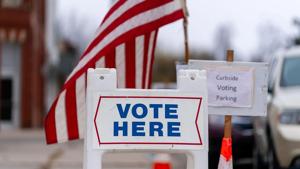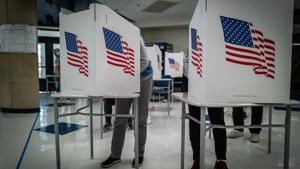(The Center Square) – Wisconsin Attorney General Josh Kaul will run for reelection rather than joining the race to become the state’s next governer, Kaul announced Tuesday.
Kaul made news Monday by appealing a Waukesha County ruling that would require the Wisconsin Election Commission to check its voter rolls with available information from the Wisconsin Department of Transportation.
“This is a pivotal time for our nation,” Kaul said in a statement announcing his decision to seek reelection. “Some of our most basic rights are under threat. Severe cuts have been made to programs that provide opportunities and have helped communities move forward. It’s critical that we continue to have an AG who will stand up for our freedoms and the rule of law.”
Wisconsin Democratic Party Chair Devin Remiker applauded the decision, saying that Kaul is standing up to President Donald Trump.
“Josh Kaul has been a champion for Wisconsin and a bulwark against the MAGA extremist politicians and the Trump administration who have been trying to subvert our democracy, attacking our personal freedoms, and stealing from everyday working people.”
A recent poll showed that Republican Tom Tiffany has a huge lead in the Republican race and former Lt. Gov. Mandela Barnes, who has not yet announced he is running, is leading amongst Democrats.
Tiffany’s campaign announced Monday that he had raised $1 million, less than two weeks after officially entering the race.
“Wisconsinites are fired up to save our state and restore commonsense leadership,” Tiffany said in a statement. “While Democrats are propped up by Hollywood millionaires and coastal elites, we are building a grassroots movement right here at home that will deliver a Republican victory for Wisconsin.”Former Wisconsin Economic Development Corp. head Missy Hughes, Lt. Gov. Sara Rodriguez, Rep. Francesca Hong, D-Madison, state Sen. Kelda Roys, D-Madison, Milwaukee County Executive David Crowley and former Democrat State Rep. Brett Hulsey have entered the race.
Washington County Executive Josh Schoemann has joined Tiffany on the Republican side.
















